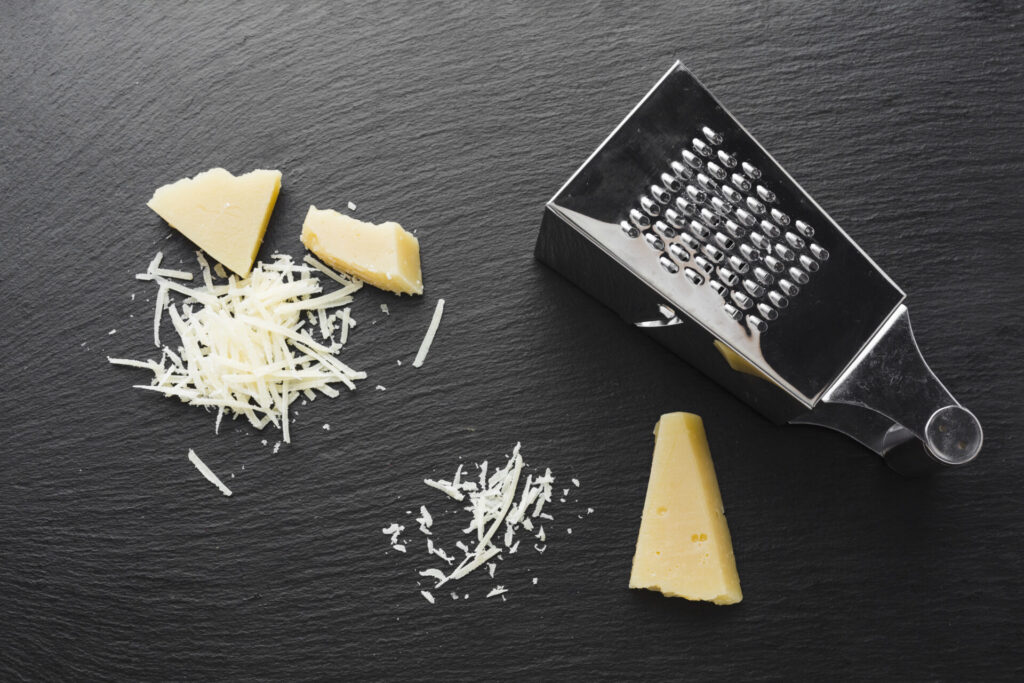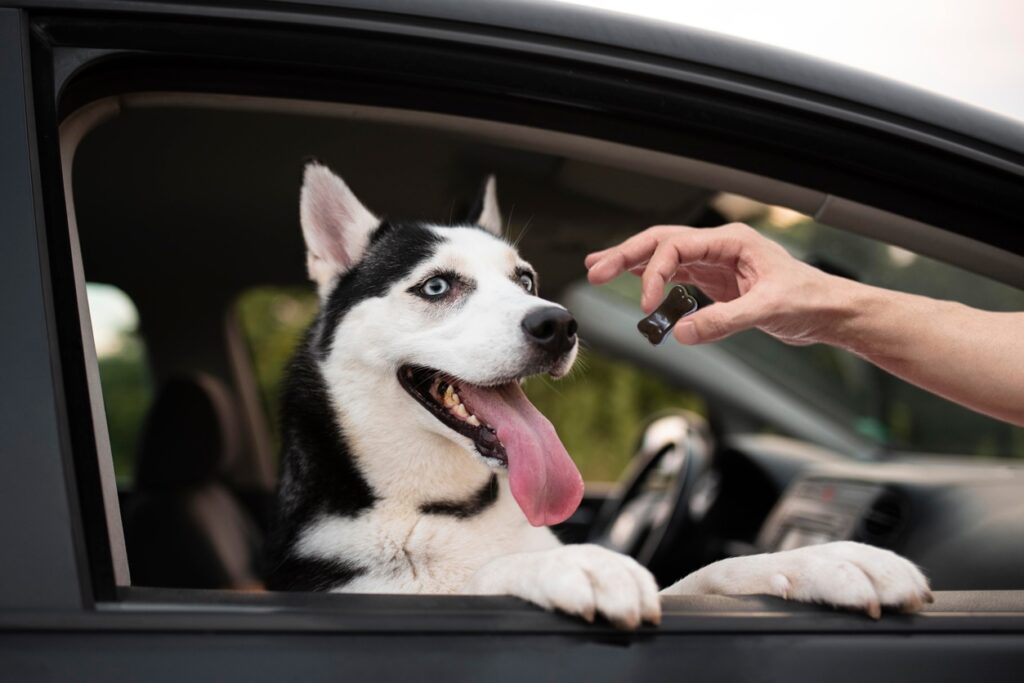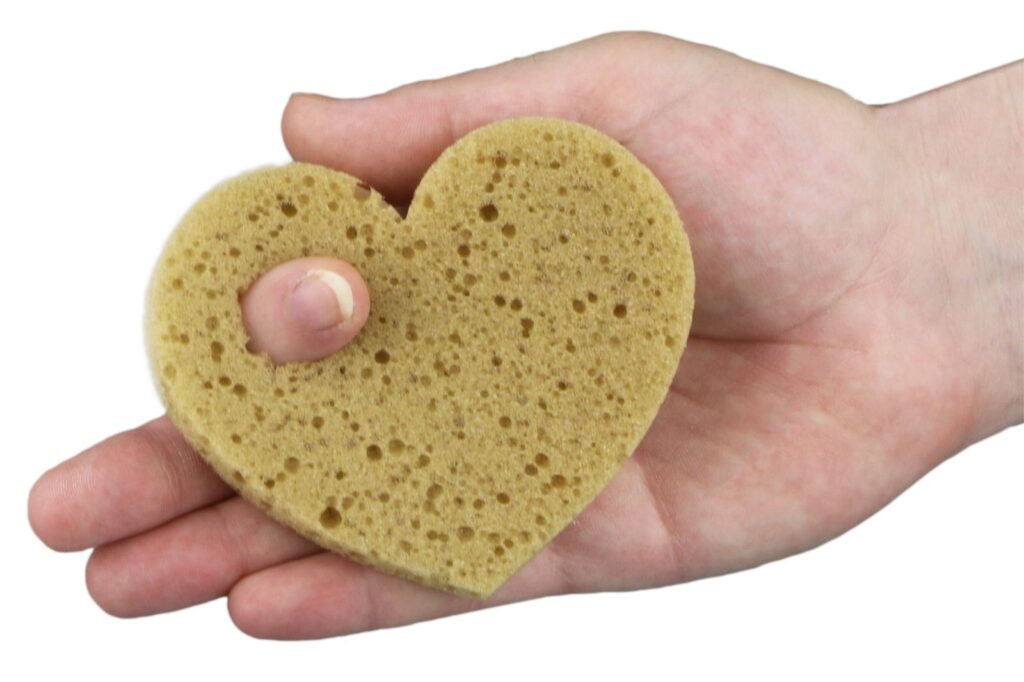Can dogs eat cheese? Yes, they generally can. However, much depends on the type of cheese and the dog breed.
Although cheese is neither toxic nor poisonous to our four-legged friends, it is good to remember that dogs lack lactase, the lactose-digesting enzyme, which means they are born with an intolerance to this disaccharide.
Therefore, the general rule is to use cheese as an occasional ‘snack’, offer it to your dog in moderation, and carefully avoid fattier types. But let us look more specifically at how to deal with this food.
Which cheeses are safe for dogs
Some types of cheese are healthier for dogs than others. The safest are those with a reduced fat content, provided they are consumed in moderation.
The safest cheeses for dogs are:
- milk flakes;
- cottage cheese;
- mozzarella;
- emmental;
- cheddar;
- Grana Padano and Parmigiano Reggiano.
Mozzarella and cottage cheese, in particular, have less fat than other cheese types, making them a good snack for dogs. Emmental is low in lactose, and are therefore easier to digest. Cheddar is a common household cheese and has a relatively low salt level, so it is safe (in small doses).
The best choice, however, is Grana Padano and Parmigiano Reggiano. These two kinds of cheese are rich in essential fatty acids and provide a high intake of protein, calcium and vitamin A and B vitamins.
Which cheeses should be avoided in a dog’s diet

There are some cheeses that, more than others, should be avoided. In particular, it is advisable never to give the dog:
- blue cheeses, such as Roquefort and Gorgonzola;
- cheeses with herbs, garlic or other flavourings;
- brie;
- goat cheese;
- feta.
Blue cheeses can produce Roquefortin C, a potentially lethal toxin for dogs, which can cause lethargy, excessive panting and tachycardia if taken in large quantities. Cheeses with herbs, garlic and other added flavourings should also be avoided: garlic is among the most toxic foods for dogs, and can cause serious health problems. Goat cheese, brie and feta have high saturated fat levels, making them unhealthy. One must remember that a high-fat diet in dogs can lead to the development of pancreatitis, a very life-threatening condition.
Regardless of cheese, be aware that not even low-fat cheeses are recommended for everyone: overweight or obese dogs should not eat cheese, as it can make weight loss difficult and lead to other health problems. Likewise, dogs with kidney problems do not get along with the high salt content of many cheeses.
Finally, if your dog often has stomach problems, be aware that cheese can cause nausea and dysentery. If you are unsure that he can handle it, try offering it to him in small quantities: if he reacts badly, avoid giving it to him again. Some dogs may be lactose intolerant and feel very sick if they eat cheese. If you suspect your dog may be allergic, keep him away from cheese and other dairy products.
How to incorporate cheese into your dog’s diet
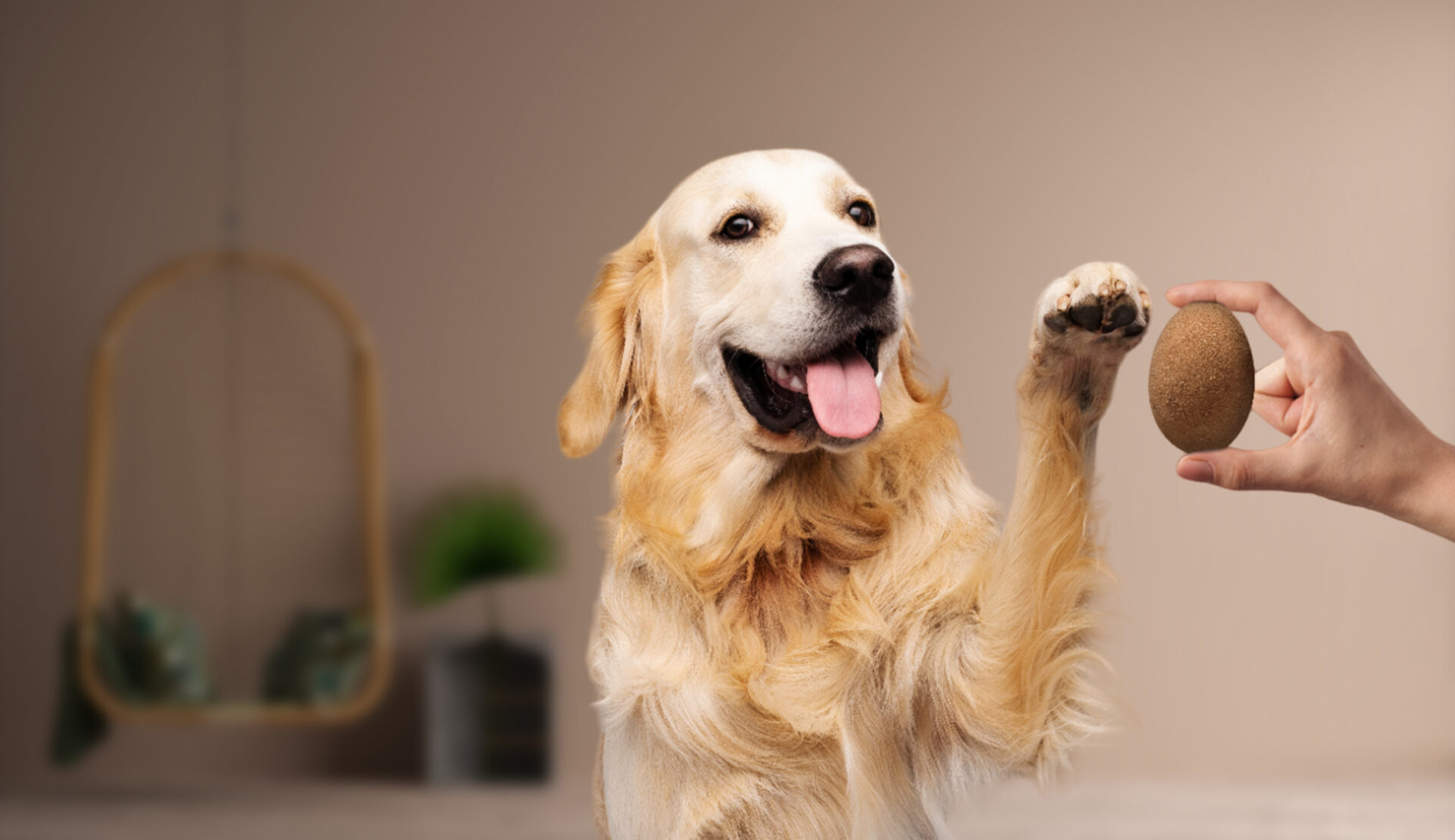
To integrate cheese into a dog’s diet, it is good to keep in mind that:
- dogs are lactose intolerant: as their bodies are not able to fully and properly digest dairy products, including cheese, eating them can cause them a stomachache;
- cheese can cause weight gain: as it has many calories due to its naturally high-fat content, it is not the right food for dogs that tend to gain weight;
- if a dog has had pancreatitis, cheese should be avoided.
Before introducing food into your dog’s diet, ask your vet for advice: he will suggest the correct portion size. If there are no contraindications, use cheese as a treat, taking care to:
- choose a low-fat cheese such as ricotta or mozzarella;
- avoid spicy cheeses, which may cause stomach upset;
- start with small portions: if your dog has never eaten cheese before, start with a small amount to see how he reacts. If it does not cause any side effects, you can continue giving it to him in moderation and small quantities.
As an alternative to using it as a snack, you can combine it with his food: put some on top of his food, or hide it underneath so that he ‘struggles’ a little to find it.
Cheese nibble ideas for the dog
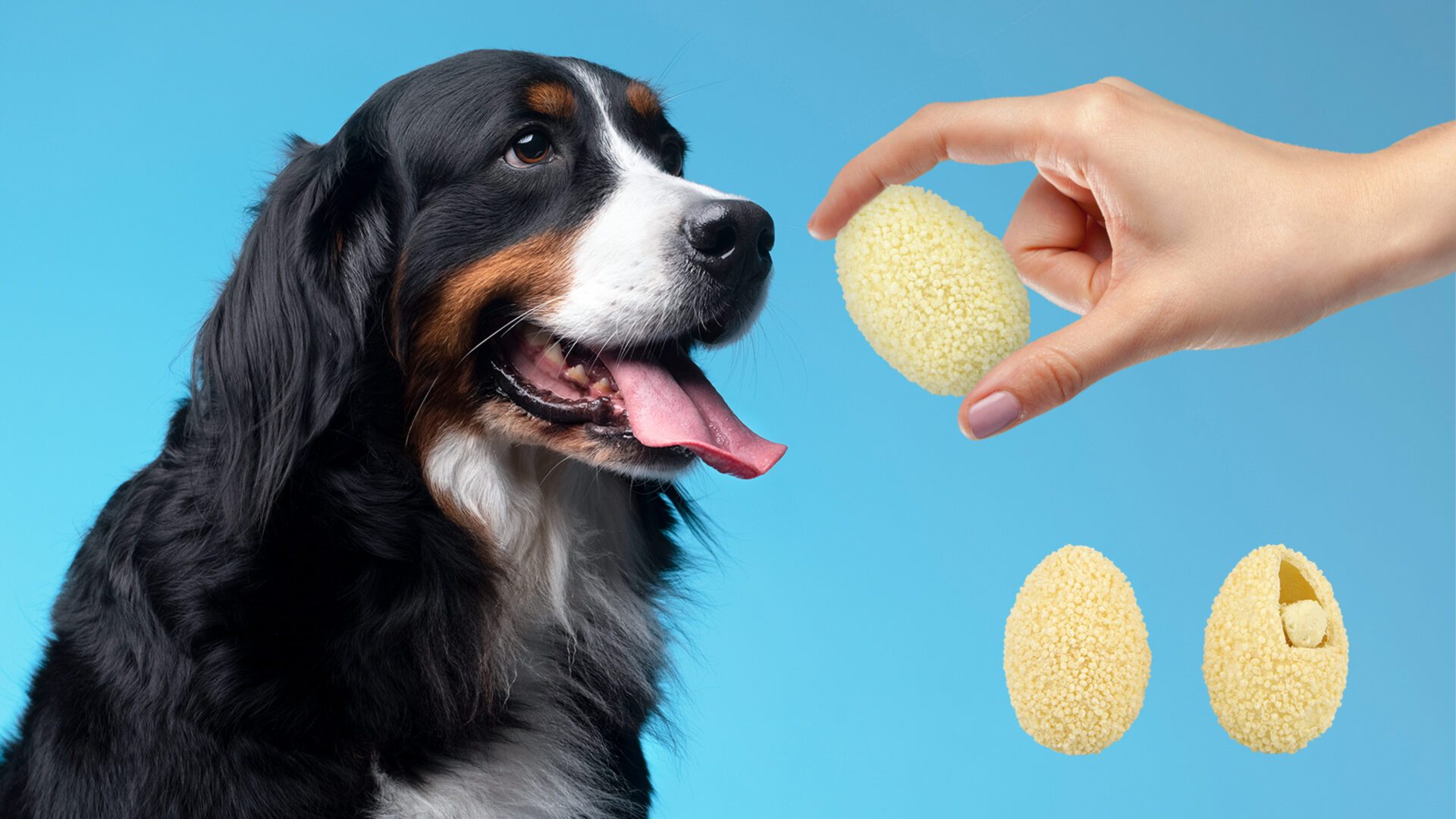
The healthiest cheese bites? You can make them yourself.
One idea could be to cook some carrots and then blend them. Mix them with 300 grams of rice flour, a whole egg, a generous handful of Parmesan cheese and a tablespoon of EVO oil. Roll out the dough with a rolling pin and then form biscuits, which you bake in the oven at 180°C for 25 minutes. Again, with Parmesan, you can make tasty morsels by forming mounds with the cheese: drop ⅔ teaspoon of chestnut honey on each mound.
Alternatively, you can opt for the fun (and tasty) Play&Gnam.
Inside the egg, a crispy wafer shell, there is a tasty biscuit. So your four-legged friend can enjoy a real treat while having fun!

Mugue Marketing Manager.
I love new ideas and continually looking for new communication strategies to never stop learning, after all, “If you’re a good marketing person, you have to be a little crazy.” (Jim Metcalf).

